Tropical Fruit Seeds Acerola Malpighia Emarginata Juicy Tart Vitamin C & A 10 Pcs Pink GMO Free
$19.98
Grow your own delicious and highly nutritious tropical fruit! These seeds yield acerola (Malpighia emarginata) with juicy, slightly tart flesh, rich in Vitamin C & A. Perfect for fresh eating, juices, and culinary creations. 10 Pcs.

Estimated arrival
Estimated arrival
Feb 17
Feb 22 - Feb 24
Feb 27 - Mar 03
Shipping and return policies: Our Alive & Thrive Guarantee covers issues with your plants within the first 30 days. Reach out to us. Our team will answer your questions and help you find the plants that are truly suitable for your environment, climate, and personal preferences.
Cultivate Your Own Tropical Superfruit: Acerola Seeds
Embark on a rewarding gardening journey by cultivating your very own tropical superfruit with these premium acerola seeds. Known scientifically as Malpighia emarginata, this remarkable plant produces small, vibrant red fruits resembling cherries, packed with an abundance of essential vitamins and antioxidants. Imagine plucking fresh, juicy, and slightly tart fruits directly from your garden, ready to be enjoyed or transformed into nutritious beverages and culinary delights. These seeds are your gateway to a healthier, more self-sufficient lifestyle, bringing the exotic flavors of the tropics right to your backyard.
The fruit of the Malpighia emarginata is renowned for its exceptional nutritional profile, particularly its incredibly high concentration of Vitamin C, surpassing many common fruits. It also provides a significant source of Vitamin A, contributing to overall well-being. Incorporating this vibrant fruit into your diet can boost your immune system, support healthy skin, and provide a natural energy lift. These tropical fruit seeds offer the unique opportunity to grow a powerhouse of nutrition, ensuring you have a fresh supply of this beneficial fruit at your fingertips, free from pesticides and artificial additives.
Cultivating acerola from seed is a straightforward and fulfilling process. Each packet contains 10 high-quality seeds, ready for planting. For optimal germination, it’s recommended to soak the seeds for 24-48 hours to soften their hard outer shell. Plant them about 1 inch deep in a rich, moist, and well-drained soil mixture, such as a blend of potting soil and sand. With proper care, including consistent watering and placement in a warm, bright location, you can expect germination within 2-3 weeks. Watch your plants flourish and prepare for a bountiful harvest of delicious, homegrown fruit.
These Malpighia emarginata seeds are ideal for outdoor cultivation in USDA Hardiness Zones 9-11, thriving in full sun to part shade conditions. While the expected plant height can reach up to 10 feet, regular pruning can maintain a more manageable size suitable for various garden spaces. The expected blooming period spans from May through November, promising a long season of beautiful flowers and subsequent fruit production. With moderate watering needs, these plants are relatively low-maintenance once established, making them a perfect choice for both novice and experienced gardeners seeking to expand their edible landscape.
Beyond their nutritional value, growing acerola adds an aesthetic appeal to your garden with its lush green foliage and delicate pink blossoms. The satisfaction of harvesting your own fruit, knowing exactly where it came from and how it was grown, is immeasurable. These acerola seeds provide an excellent opportunity to connect with nature, enjoy fresh, organic produce, and introduce a unique and beneficial fruit into your family’s diet. Start your tropical fruit garden today and experience the joy of homegrown goodness.
Frequently Asked Questions
- How long does it take for acerola seeds to germinate? Germination typically occurs within 2-3 weeks after planting, provided the seeds are soaked beforehand and kept in warm, bright conditions.
- What is the best way to prepare the soil for planting these tropical fruit seeds? Use a rich, moist, but well-drained soil mixture, such as a blend of potting soil and sand, to ensure proper drainage and nutrient availability.
- What are the sunlight requirements for an acerola plant? Acerola thrives in full sun to part shade. Ensure your plant receives adequate sunlight for optimal growth and fruit production.
- How tall can an acerola tree grow from these Malpighia emarginata seeds? With ideal conditions, an acerola plant can reach an expected height of up to 10 feet, though it can be pruned to maintain a smaller size.
- What are the main benefits of growing your own acerola fruit? Growing your own acerola ensures a fresh supply of a highly nutritious fruit rich in Vitamin C and A, perfect for juices and culinary uses, and free from pesticides.
Be the first to review “Tropical Fruit Seeds Acerola Malpighia Emarginata Juicy Tart Vitamin C & A 10 Pcs Pink GMO Free”
-
USDA Hardiness Zone
9-11 -
Soil Type
Rich, moist but well-drained -
Sunlight Exposure
Full sun to part shade -
Expected Planting Period
Spring

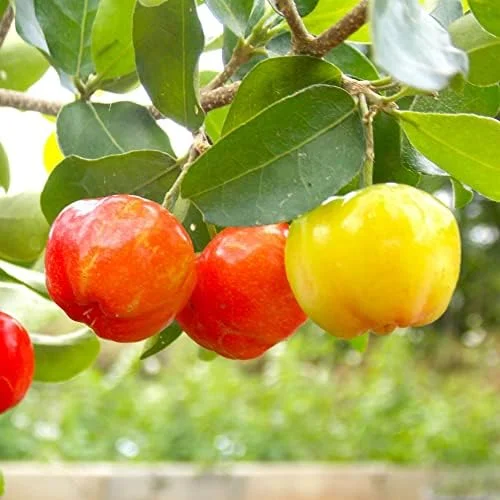
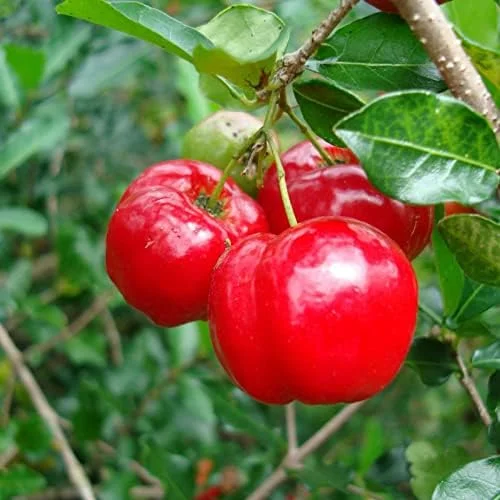
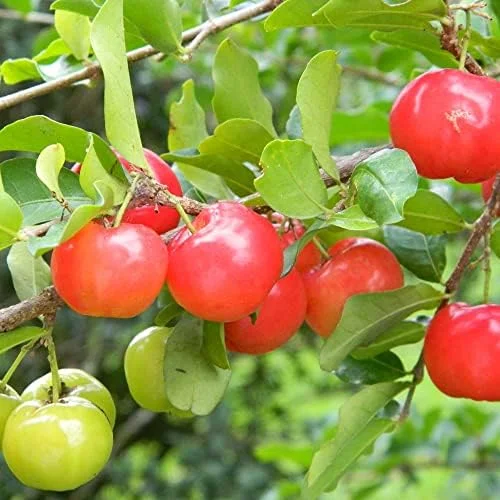
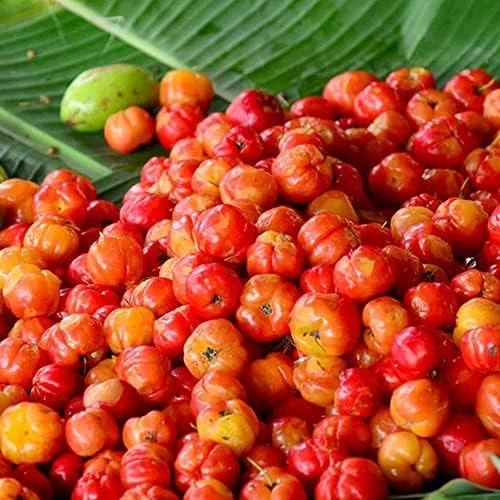
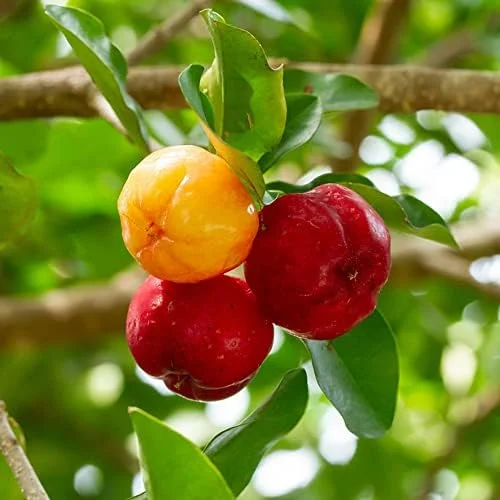
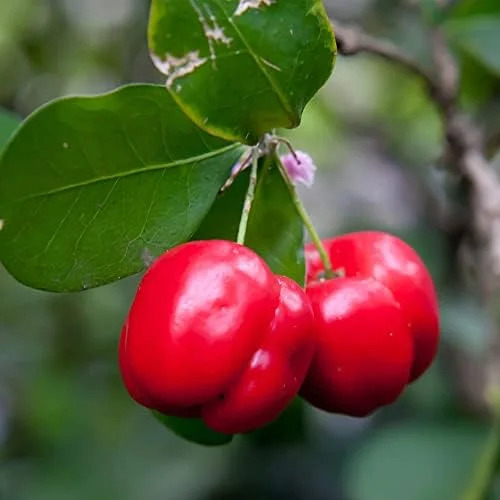
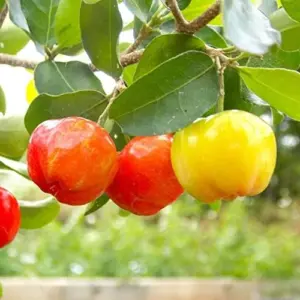
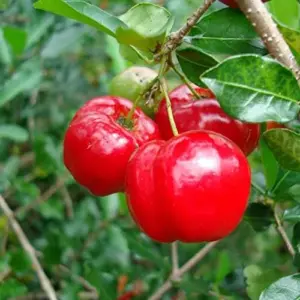
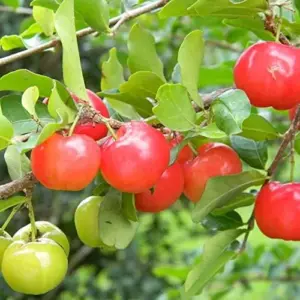
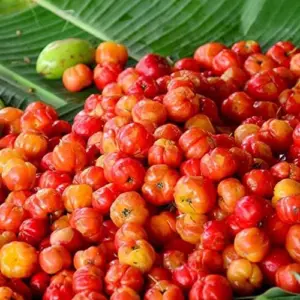
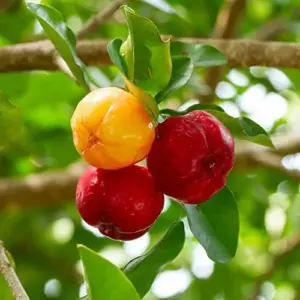

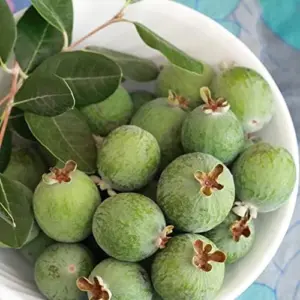
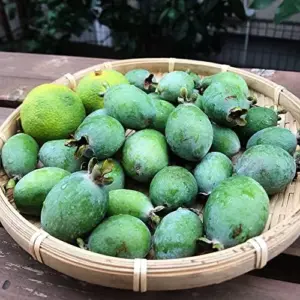
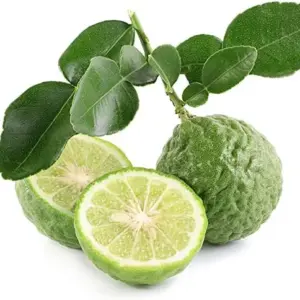
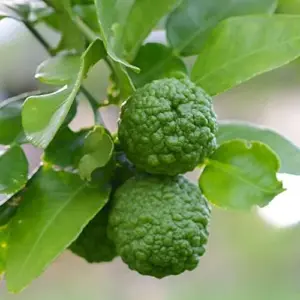
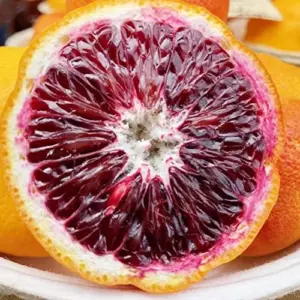
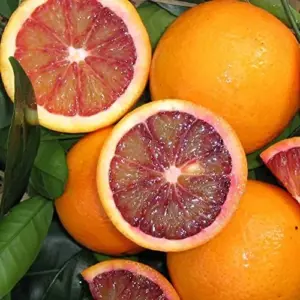
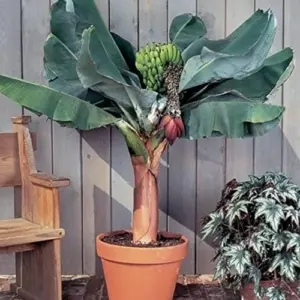

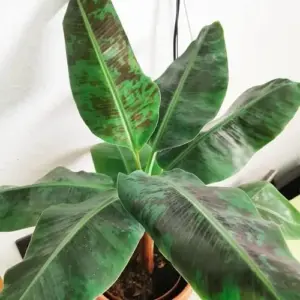

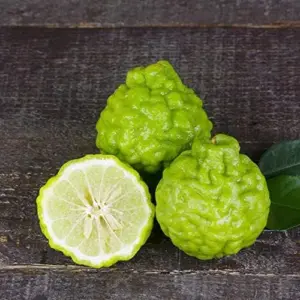
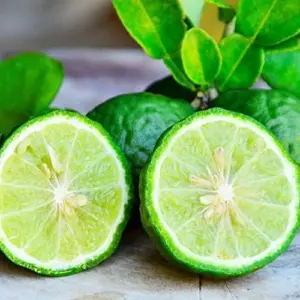



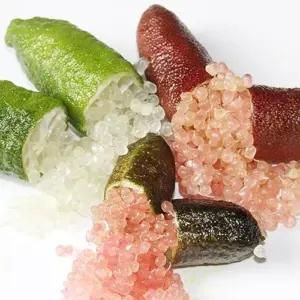


Reviews
There are no reviews yet.